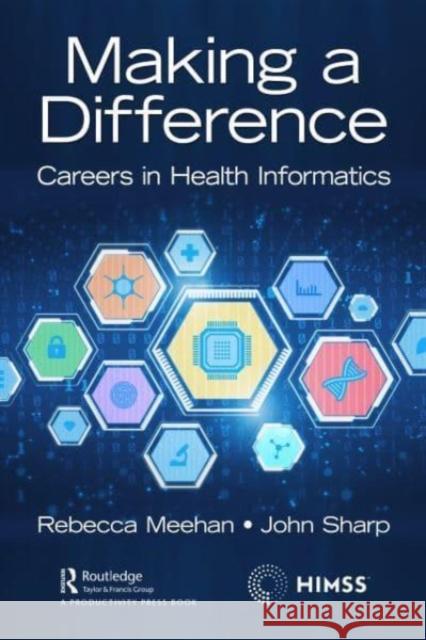Making a Difference: Careers in Health Informatics » książka
Making a Difference: Careers in Health Informatics
ISBN-13: 9781032029023 / Angielski
Making a Difference: Careers in Health Informatics
ISBN-13: 9781032029023 / Angielski
(netto: 287,39 VAT: 5%)
Najniższa cena z 30 dni: 277,00
ok. 16-18 dni roboczych.
Darmowa dostawa!
The book is unique in the sense that it brings together an assessment of current job roles across a variety of stakeholders including health care settings, payer organizations, and health information technology companies.
Making a Difference: Careers in Health Informatics addresses everyday questions from people interested in working in health informatics. Typically this includes professionals in health care, computer and technology fields, information science, finance / insurance and related areas and students about what jobs exist in the health informatics field, what credentials they need to qualify for those jobs, and a brief description about what people in those roles tend to do everyday. As faculty members teaching in a Masters’ of Science in Health Informatics program, they are fortunate to have eager, bright and talented graduate students who are invested in related health informatics areas, whether it is through their experiences in medicine, nursing, clinical care, software engineering, finance, business, library science, data science, or caregiving. However, common questions we hear from our students include: ‘what jobs are out there?’, ‘what can I do with this degree?’ or ‘what does a health informatics specialist do?’ This book aims to answer some of these questions with a look into what career options exist in health informatics, including their roles and responsibilities, and expectations on a daily basis. The book is unique in the sense that it brings together an assessment of current job roles across a variety of stakeholders including health care settings, payer organizations, and health information technology companies. Professionals in health informatics add clarity, insight and direction in a healthcare landscape that can be overwhelmed by data. Those working in health informatics help organizations to manage and navigate data to inform decision making and strategy. The hope is that this book will add insight into career opportunities students and professionals may be qualified for, and interested in, but simply not aware of. And, if they are interested in a specific role, they can tailor their education and training to focus on the skill set necessary for the role. Moreover, by providing a description of these job roles in complementary stakeholder groups, students and professionals may gain perspective on how informatics can make a difference in addressing today’s salient health issues for individuals, organizations, and clinicians. Additionally, ways of promoting online presence and possible lifelong learning opportunities will be discussed. This book aims to help students and professionals interested in making a career change to understand the field of health informatics by examining professional roles in demand, what kinds of jobs are available, what skill sets they need, why it is necessary, what life is like on a daily basis, how to improve one’s abilities, and how to maintain consistent competitiveness through one’s professional career. Employers across the stakeholder groups may also find the book helpful in learning about other roles that may benefit their organizations.











